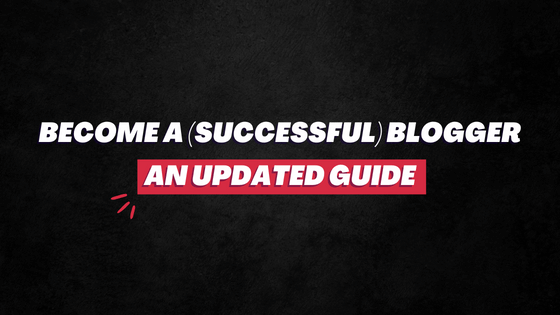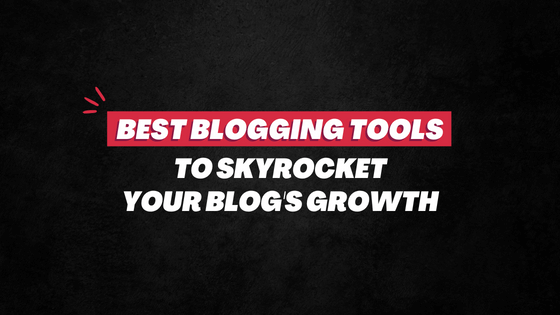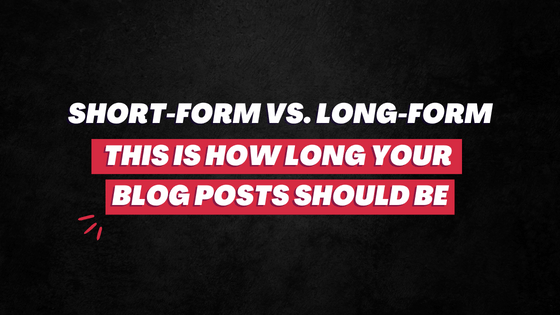It’s not easy to answer.
For bloggers, there’s A LOT to do. Too many hats to wear.
Write articles. Post on social media. Send emails to subscribers. Community manage. Optimize content. Design images. Keep track of monetization…
And then create some more content.
So, effective time management is essential.
Losing even a few minutes can be quite a big deal.
BUT yet, there are so many ways bloggers waste their time.
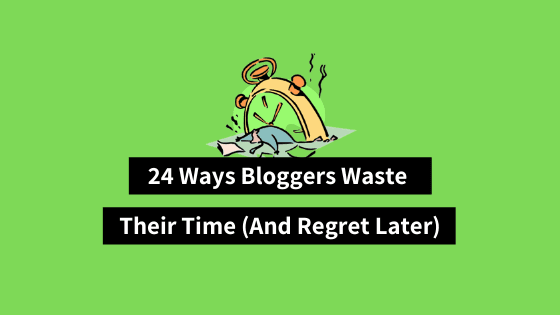
Are you a blogger?
Audit your day. There’s a good chance you’re wasting a lot of your time too.
Let’s dive right into it…
Here are 24 ways bloggers waste their time:
1. Writing Content That Has No Demand
It’s not about what you want to write on. It’s about what your target audience wants to read.
This is one of the biggest blogging mistakes and a time-waster.
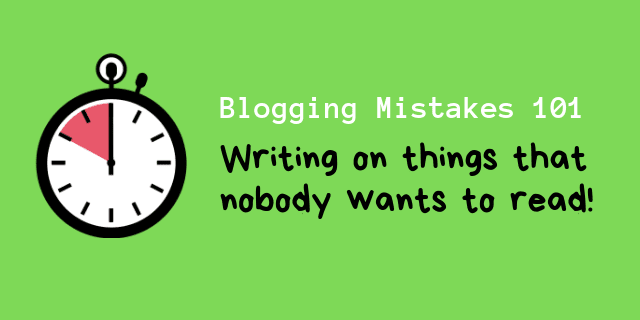
So many bloggers write on things that they “want to say” without confirming if their readers even want to read that.
This usually happens because they don’t have an editorial calendar, buyer person and customer journey, which would have navigated their way to relevant blog topics that have market demand.
2. Obsessing The Blog Design (And Every Detail)
The design of the website or blog needs to be good.
After all, it affects SEO, conversion, and revenue.
Recommended Read: Does Blog Design Matter (And How It Affects Your Revenue)
But then this doesn’t mean one should spend hours in this department.
Sadly, this is what many bloggers do.
This is an even bigger problem for those who don’t have HTML, CSS and JavaScript knowledge.

A basic blog with basic features is more than enough. Comparing the design with others’, who likely have spent big $$$ on professional designers, is quite naïve.
3. Spending Too Much Time In Keyword Research
Keywords are still important. You must include them in your content.
However, keywords research shouldn’t take a lot of your time.
At a time when natural, non-awkward keywords (“SEO checklist for 2019” > “SEO checklist 2019”) are what the search engines looking for, coming up with a list of keywords is quite intuitive.
For instance, if you’re writing on “how to get more likes on Facebook” – there’s a good chance the keywords would include ‘increase Facebook likes’ ‘how to increase likes on Facebook’, and more.
Quite intuitive.
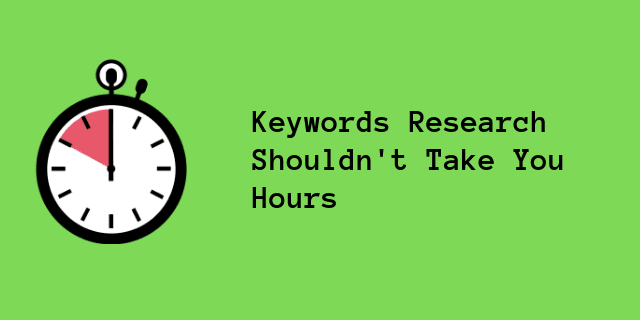
So, spending hours on Google keyword planner to come up with the “perfect” phrases doesn’t make much sense. If you’re doing that, you’re wasting your time.
Recommended Read: How to Do Keyword Research For Free In 11 Minutes?
4. Creating LOOOONG Content Unnecessarily
The length of the articles should only be as much as it is needed to convey your message clearly and most effectively.
But then the narrative that exists today is that the long-form articles perform better on the search result.
So now?
Many bloggers are now shelling long-form content just for the sake of it.
Not surprisingly, this hurt the quality of their content and deliver less value for readers’ time.

If you’re one of those who are publishing long articles unnecessarily, not only are you wasting your time, you would also fail to get those articles rank better. Because down the line, the search engines would figure it out that they are bad in quality.
Remember,
Long-form content is good. But who said short-form is bad?
Recommended Read: The Myth of 1,890 Words Long Articles: Long-Form Content and SEO
5. Choosing The Wrong Blog Post Format
How-tos and list-based articles are easier to write.
You create a framework first with all the headings and sub-headings. And then you flesh out each of those headings and sub-headings into unique paragraphs.
Comparatively, the what, why and other kinds of similar content formats are not as easy to bring into words.
They generally demand more research work and consistency in the thought process.
Of course, not everyone might agree to this.
I personally find how-to articles much easier and quicker to write.
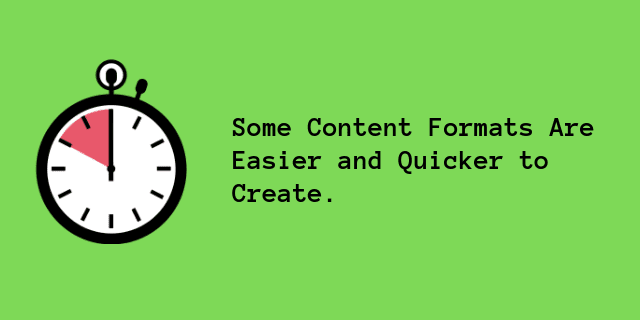
In the end, it comes down to the kind of content format you’re comfortable with. If you’re focusing on anything other than that, you’re going to end up wasting a lot of time.
6. Looking For A Perfect Copy
You cannot create a “perfect” copy. No one can.
And in pursuit of that perfect content, most of us waste a lot of time.
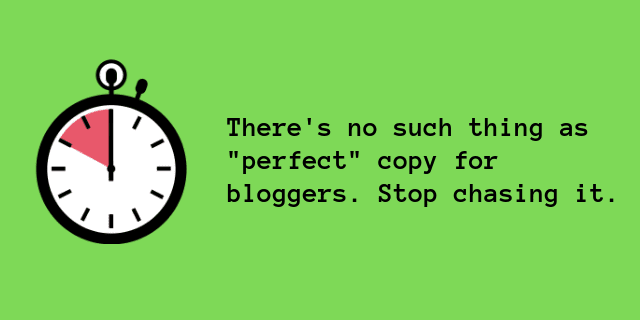
Go back to the old blog posts that you thought was perfect at the time. Do you still believe they are “perfect”?
Likely not.
You will find plenty of flaws. You would even wonder “what was I thinking”. (It’s a great sign that you have grown as a blogger!)
Speed is 4 billion times more important than perfection – Gary Vee
7. Not Running Automated Email Campaigns
Marketing automation is a part of the mainstream conversation now. And yet so many bloggers aren’t effectively leveraging on this.
Are you one of them?
You can create multiple lists and segmentation to trigger highly-personalized drip campaigns to your subscribers.
Tools like MailChimp and Aweber are great for beginners.
But if you’re looking for more serious and dynamic tools, the likes of Infusionsoft and Ontraport are a great choice.
Stop sending emails to new (and old) subscribers manually. Stop writing new emails every other day.
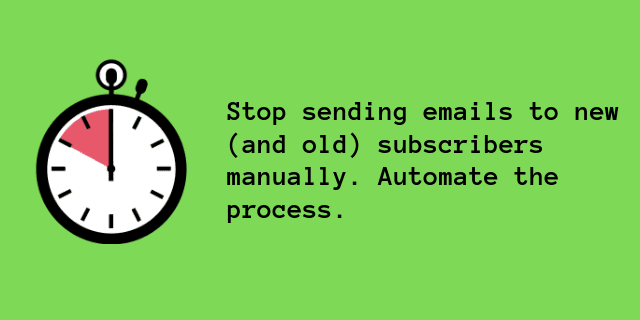
Create a bulk of well-thought and relevant emails in one sit. And then put them on an automated campaign.
Recommended Read: A Complete Guide On Free Email Automation on Mailchimp
8. Trying To Copy Others
You want to create a piece of content just like XYZ creates it.
You want to have a kind of blog design just like YZX has.
You want to run social media campaigns just like ZXY is running.
But here’s a quick fact: Those XYZ, YZX, and ZXY either have a team working with them or they are simply experts at what they do.
When you copy them, you give up your authenticity and USP.

And, of course, when copying someone else, which is usually out of your comfort zone, you end up wasting a lot of time.
9. Putting Too Much Thought Into Blog Images
Images are important. But not that much where you would spend good 10-20 minutes finding the “best one”.
Pixabay and Unsplash bring millions of stock images. Pick one and be done with it.
If it’s too confusing or you’re having trouble finding relevant images, a simple (and quick) solution is to make your own image.
Put some texts (from your content itself) over a solid color background. That’s your “own image”.
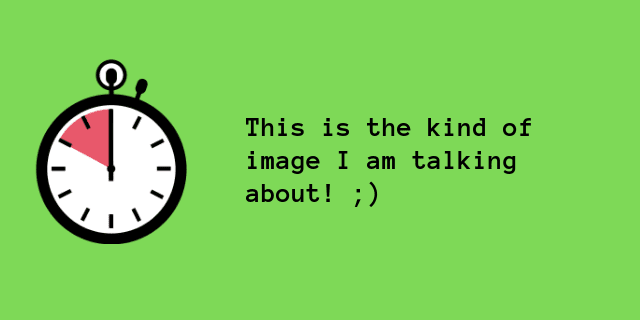
It’s a functional solution. At times, such edited images suit even better than the stock images that look too common.
And most importantly, such resourceful and relevant images improve the shareability of your message. If readers like it, they can easily share the image on different social platforms.
Using tools like Canva, creating such text-based images is quite easy.
10. Manually Posting On Social Media Every Hour
It’s a BIG blogging mistake. And, yes, it wastes a lot of time.
If you publish on multiple social media platforms several times a day, manually doing it is not only time-consuming but also incredibly inconvenient.
This is where social media management tools come in.
The likes of Hootsuite, Buffer, Sendible and Sprout Social are some of the very popular names.
Through them, manage all your social media accounts under a single roof.
And, most importantly, schedule all your day’s (or week’s) posts in one-sit.
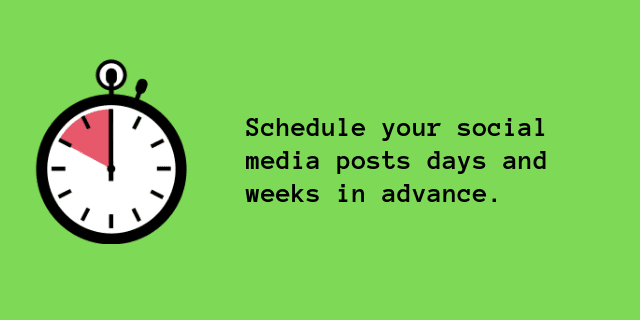
This can literally save you hours every week.
11. Worrying About Search Engine Optimization
It’s a very clichéd idea – reckless even, given this blog Spell Out Marketing focuses a lot on SEO. But…
If you take care of providing real value to the users, search engines are going to take care of ranking your website higher.
Meaning, focus on providing substantial value to your audience.
If you do that correctly, the rewards from Google and Bing will inevitably follow.
This is another way of saying: Do not spend too much time on SEO every day.
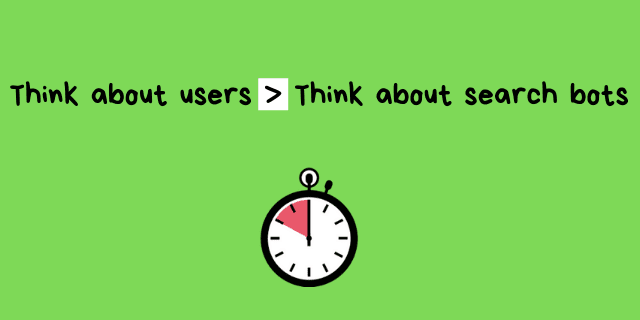
High-quality content is share and link-baiting. It ranks higher. And if people find value out of it, they will link and share it.
Stop obsessing over keywords, outbound links, internal links, and so forth all the time.
There are many names out there who are their niche-champions without much of SEO work.
So, do not spend hours worrying and trying to ace SEO.
Recommended Read: A Complete SEO Checklist (+ PDF Download)
(Note: This, in no way, suggests that SEO isn’t important. IT IS. Just don’t waste hours on it every week.)
12. Not Hiring The Needed Help
DIY is great. But it also comes at a cost of time.
The change in the blog design that you will take an hour to make, a developer can do that in likely 5-10 minutes.
Troubleshooting your blog’s backend would take you hours. For a professional, it’s just a work of a few minutes.
When we try to do everything all by ourselves even when we suck at them, our efficiency takes a big hit. This wastes our time.
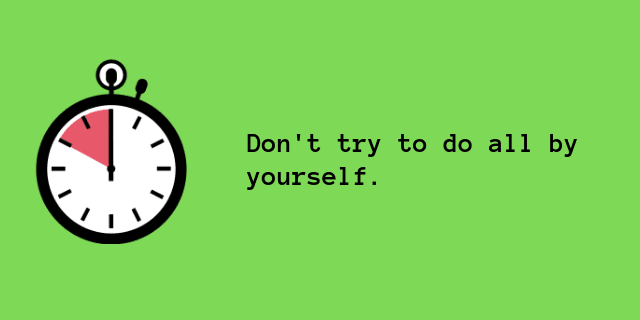
Instead of pushing yourself to learn and DIY, hire professional help whenever you can… Developer, designer, virtual assistant, email manager, proofreader, more.
13. Doing A Lot Of Research Work Unnecessarily
There are people who don’t do any research work.
And then there are those who spend an awful lot of time in this.
Well, in reality, they aren’t really “researching”.
Instead, they are just pushing away actually writing – because they don’t like working or they are afraid of writing.
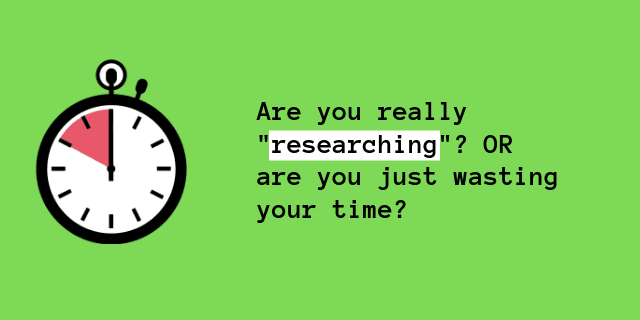
If you blog on things that you’re an expert at, active researching at the time of writing (unless you need data) is not something that’s often required.
If you’re still doing that, and you’re taking a lot of time at that, you’re wasting your minutes and hours.
14. Planning. And Planning Some More
We all have amazing ideas. In the execution stage do the most of us tank!
This is a big problem for many bloggers.
They plan a lot – from the kind content they will publish to the kind campaigns they will run.
They plan about how they will monetize their blog.
They plan about the emails they will push to their subscribers.
They plan. And plan some more.
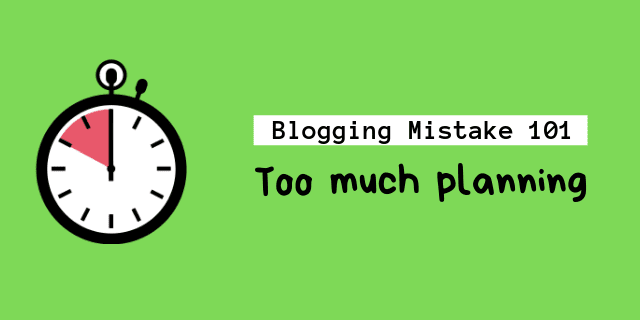
As mentioned, most of these plans do not get executed. And the time spent on them ends up being wasted.
Blogging requires a well-defined plan. But sometimes just rolling up your sleeves and showing up to write without much of technical planning helps.
15. Dwelling On Traffic Numbers And Graphs
One, your blog won’t hit a jackpot of traffic in just a few weeks.
Two, the graph that goes up also comes down.
Yes, analytics is very important. You must measure your traffic, engagement and other results to stay ahead of the curve and plan better.
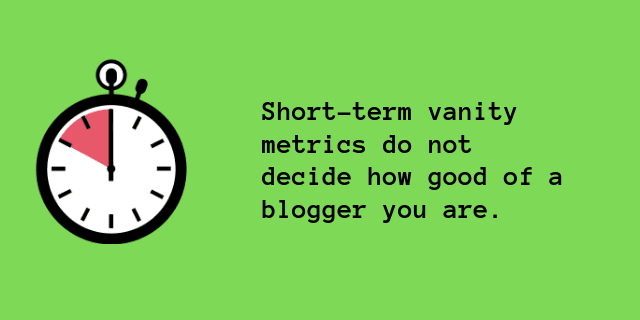
However, if you’re dwelling on these numbers and graphs without extracting any substantial insight, even you know you’re wasting your time.
16. Thinking Too Much On Social Media Posts
Most of the time this comes out of personal insecurity.
People want to get the most number of likes, comments, and shares. This is why they spend too much time thinking about what they should post next on social media.
They are looking for that “perfect” post that can get viral.
Of course, this is absurd.
Many times, you won’t get as many likes and views. And IT’S OKAY.
Stop getting hung up on these vanity metrics.
They are the measure of your social media growth – NOT your or your message’s relevance.
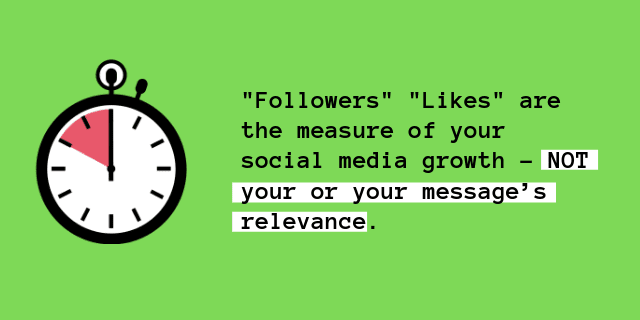
Figure out what kind of content format you’re comfortable with on social media: text, audio, video. Identify “WHY” people follow or would follow. And then produce the content accordingly.
Do not overthink it.
Efforts on social media is an on-going process and NOT a one-time thing. Don’t obsess one post.
17. Working Without An Editorial Calendar
What happens when you work without an editorial calendar?
- You don’t know when to write.
- You don’t know what to write.
- You have no deadlines.
- You have no framework to work with.
All these hurt your efficiency and time management.
And this, in one way or another, ends up wasting a lot of time without you even knowing about it.
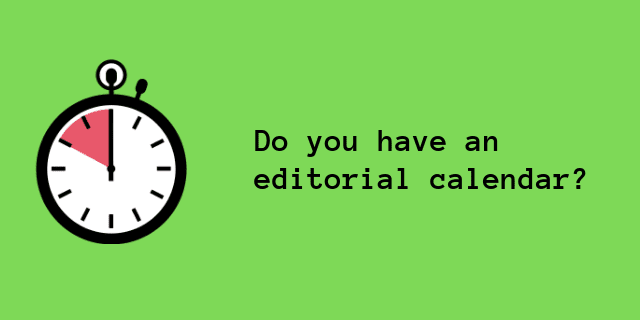
Editorial calendar is one of the most important components of blogging success. Sadly, it’s also incredibly underrated.
18. Trying To Know Everything First
This is analysis paralysis.
So many people want to start a blog and grow it into something big. But they don’t because they don’t know how to do that.
Of course, watching videos and reading articles is important to learn.
However, what happens with many is that they get so engrossed in this learning stage that they don’t take the actions for long.
Because they believe that there’s a lot to learn and they should learn them all first before acting… that they must first have a perfect plan… that they should know everything first before doing anything.
They, in a way, fear to take the action because they believe they are still not ready.
They get paralyzed by too much analysis.
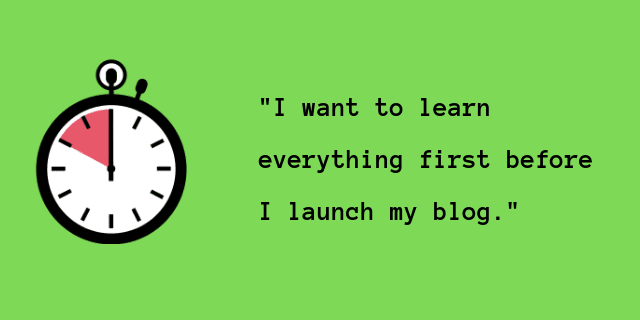
This wastes A LOT of their time before they finally take the first step.
Blogging is an on-going game. You learn as you go. You learn from your mistakes.
There’s a reason why those “learn how to be a blogger” courses are bad – because it can’t really be taught in theories. You’ve got to jump on the scene and try things first-hand.
19. Monetizing The Blog From Day 1
Monetizing your blog is much more than just putting up banner ads or plugging in the affiliate links.
It requires a proper strategy and lots of thoughts. And this “strategy” and “thoughts” require time.
Monetizing your blog from day one is a big mistake.

Not only will it NOT return you with any reward because you’re yet to get decent traffic, but it might also hurt your brand value because you’re shoving your visitors the ads and affiliate products. And most of them won’t appreciate this.
This doesn’t mean you shouldn’t think of monetizing your blog or shouldn’t have a plan.
It simply means spending a lot of your time on this department in the early stages, where it is unlikely to deliver you the desired returns, doesn’t make much of a sense.
It actually is a waste of time.
Instead, you could spend that time focusing more on building a digital asset, promoting content, generating traffic and growing your email list.
Recommended Read: 21 Ways to Make Money From Your Blog (Without AdSense)
20. Creating Content For Every Platform
There are tens and even hundreds of platforms out there.
Sure, basic math says the more platforms you’re on, the more people you will reach.
But then it’s not easy, is it?
As a one-person team, you can’t be on all platforms, producing a diverse range of native content in different formats.

It almost sounds impossible.
This is where picking a few most relevant platforms becomes important – instead of trying to be everywhere.
Which platforms offer you optimum return on your time investment?
Medium is popular – but do you really have to be there?
Pinterest drives big traffic to recipe blogs – do you think it can do the same for your self-development blog?
Do some research! Check your analytics. See what your close competitors are doing. Find a few platforms, and spend more of your resources there.
If you’re diversifying your attention and time to so many platforms, not only will you be wasting a lot of your time, your efforts would also be highly ineffective.
21. Taking Too Much Time To Complete An Article
This is exactly what you think it says and means.
You’re taking an hour to complete just 500 words, when you should have done that in 30 minutes.
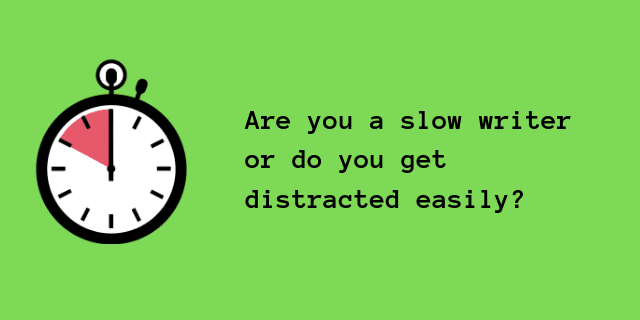
The reason behind that could be…
- You’re a slow writer. (You type slowly!)
- You get easily distracted, which makes completing even small tasks very time-consuming.
In either of the cases, you’re wasting time that you shouldn’t.
So, if you take too much time to complete an article, find out why, and then fix it.
22. Working Without Goals
Why would you want to complete an article in one hour when you have three hours to do that?
Why would you want to publish that blog post today when you can do that tomorrow?
Why would you want to get 500 visitors today when you have the rest of the month to do that?
So many bloggers lack well-defined goals. And this is a BIG mistake.
Because this leads to complacency.
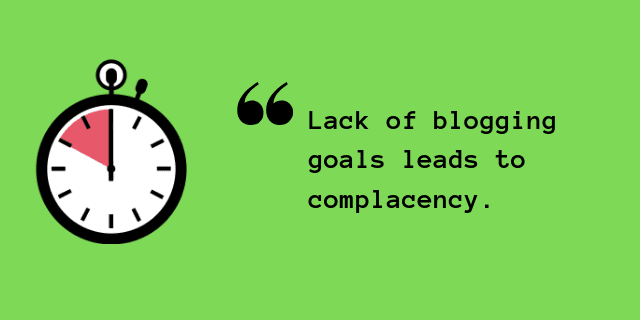
And, of course, in lack of goals, growing the blog and being consistent in efforts become almost impossible.
When you’re not running after goals, you will feel like you have all the time in the world.
And when you have all the time in the world, you will end up wasting most of it.
23. Spending Too Much Time On Less-Important Decisions
Is this font good? Do I need that plugin? Should I change the color of my blog design? Should I remove that page from the menu bar?
It doesn’t matter.
These are very small things that fall at the bottom of the bloggers’ priority list.
And yet most of us spend a considerable amount of time, confused, on such less-relevant things.
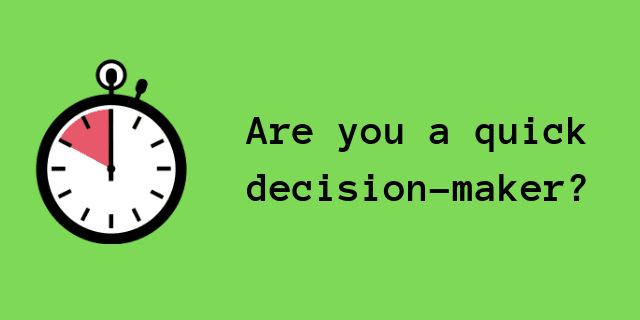
Outline the three most important things for you as a blogger. And then if you’re ever spending more time on anything other than these “three things”, understand that you’re wasting your time.
24. Doing Leisure Activities During “Breaks”
“Breaks” are commute, walking, resting and whenever you’re free, awake and not eating.
Now, during such breaks, you can either watch YouTube and call friends OR work on the small things of your blog that you can do even from your phone.
Like scheduling social media posts, responding to tweets and comments, researching and more.
These are small (but important) things that bloggers can squeeze in their “breaks” instead of doing leisure activities.
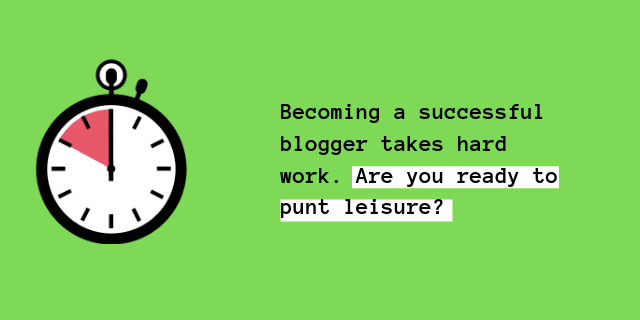
This will help you maximize your productivity and become an efficient blogger. Hence, saving you a lot of time.
Recommended Read: 37 Practical Productivity Tips For Bloggers With Full-Time Job
Conclusion
For anybody who wants to be a successful blogger, being efficient is one of the key factors.
Today, more so than ever, when creating high-quality content in large volume is important, you’ve got to be very watchful of how and where you’re spending your time and the returns you’re getting.
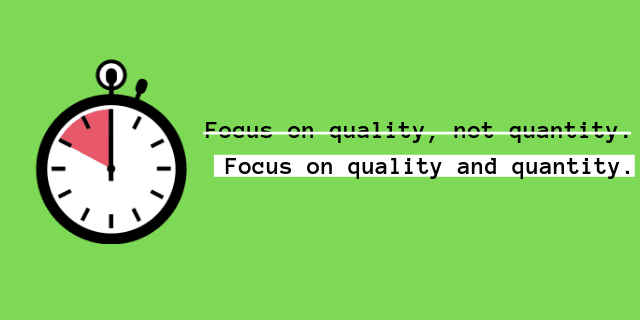
New bloggers, in particular, get too obsessed with the little things, which wastes an awful lot of time for them.
The above 24 points are ways how bloggers waste their time.
If you see yourself not effectively using your minutes and hours, make appropriate fixes.
It is a cliché but it’s true: Time is money.
If you’re chasing big dreams, you’ve got to save time from irrelevant tasks and channel it to something more relevant and rewarding.
Hope this post brought value to you.
If you have any question, connect with Spell Out Marketing. Either email me or just send me a tweet. I would love to help. 🙂
(P.S. Are you Instagram? Follow Spell Out Marketing on Instagram. I post bite-sized content on digital marketing there. Check it out.)
